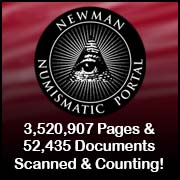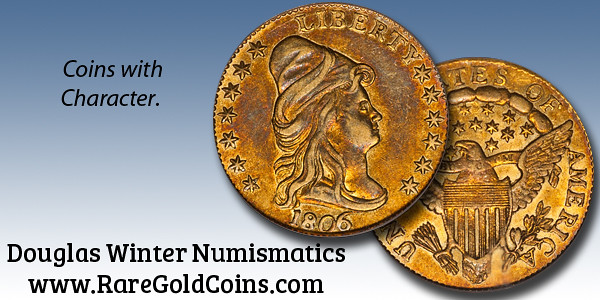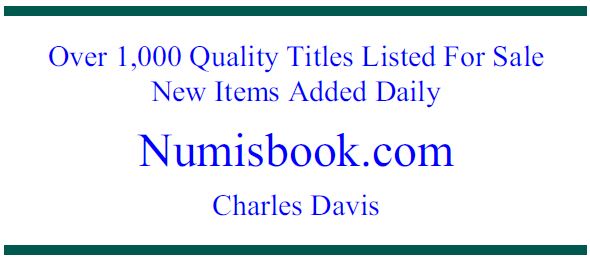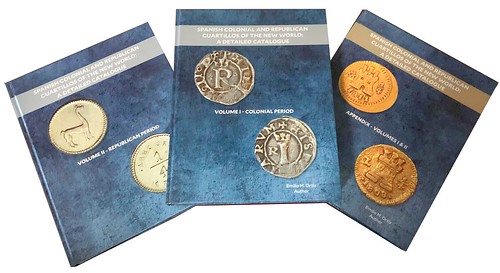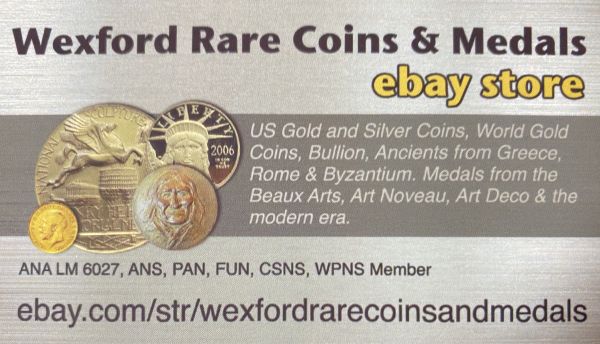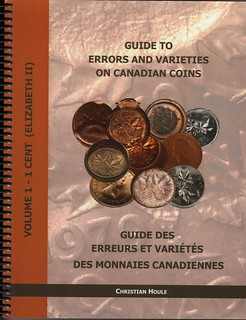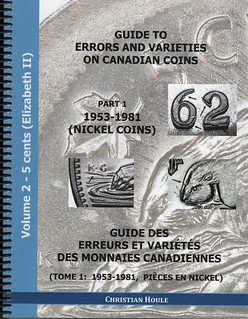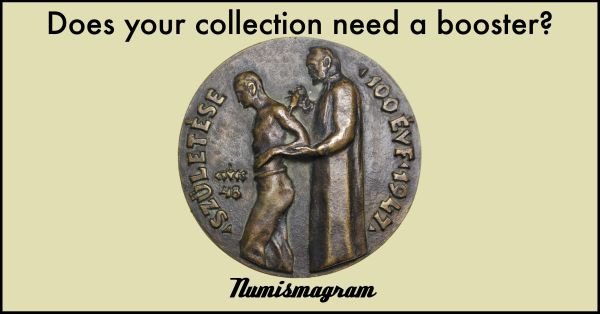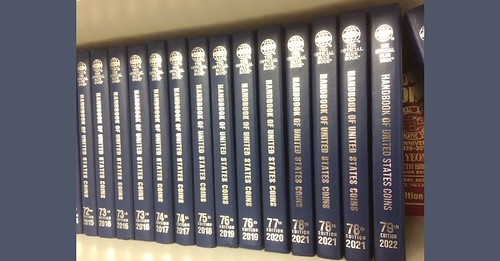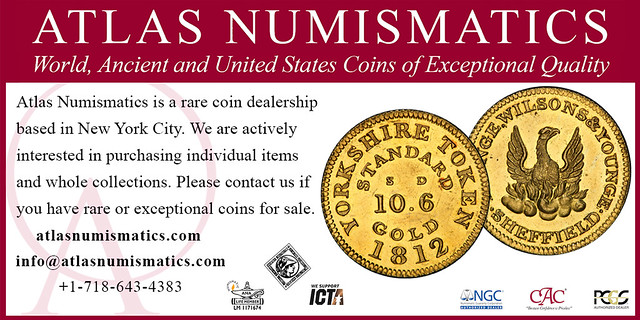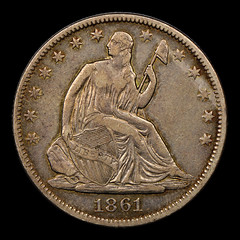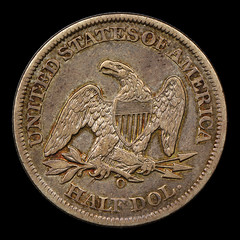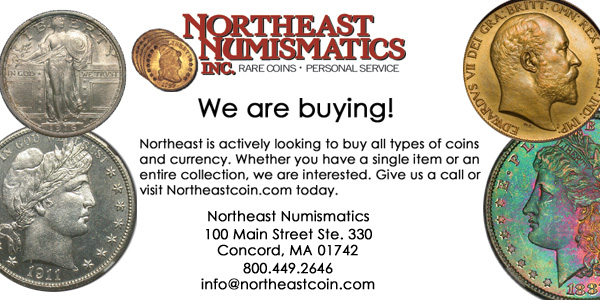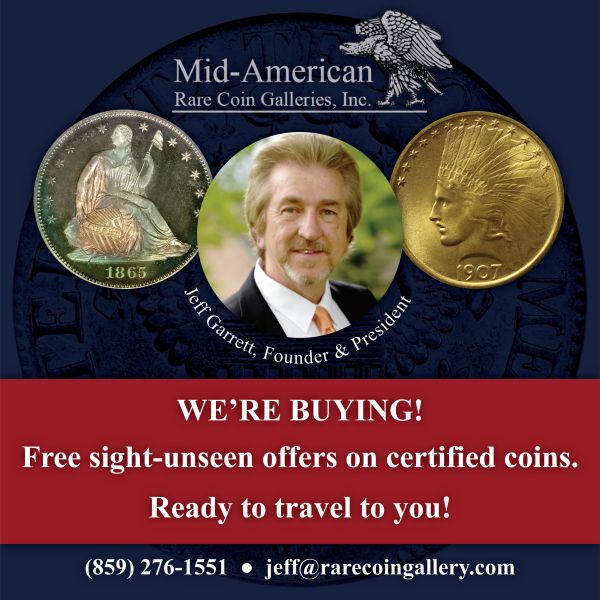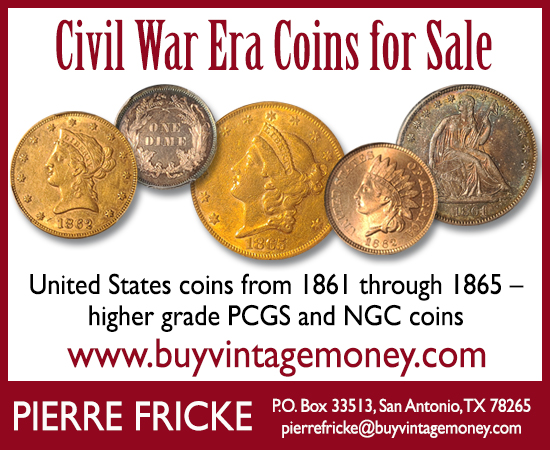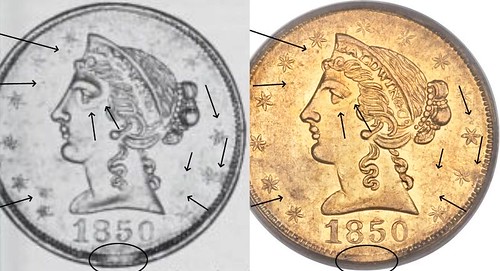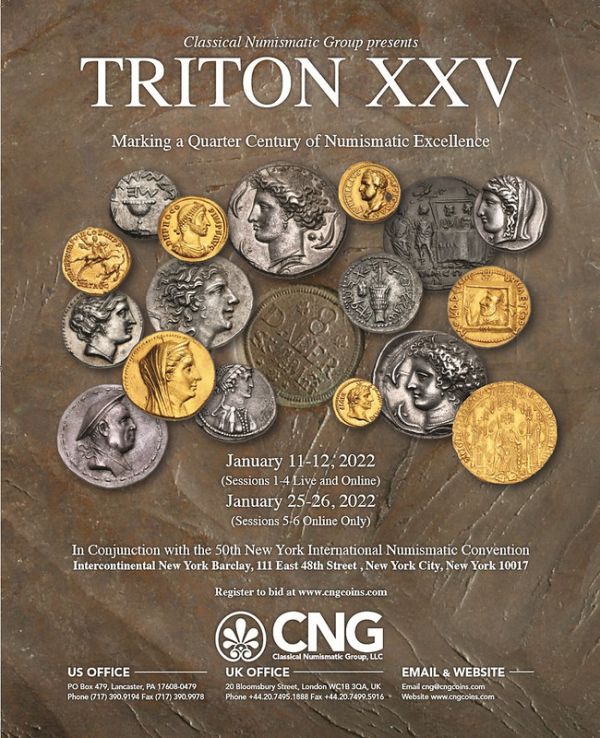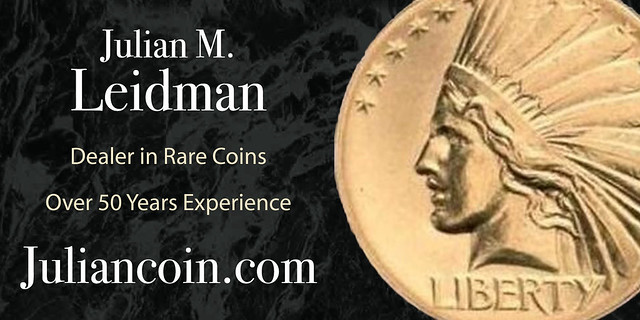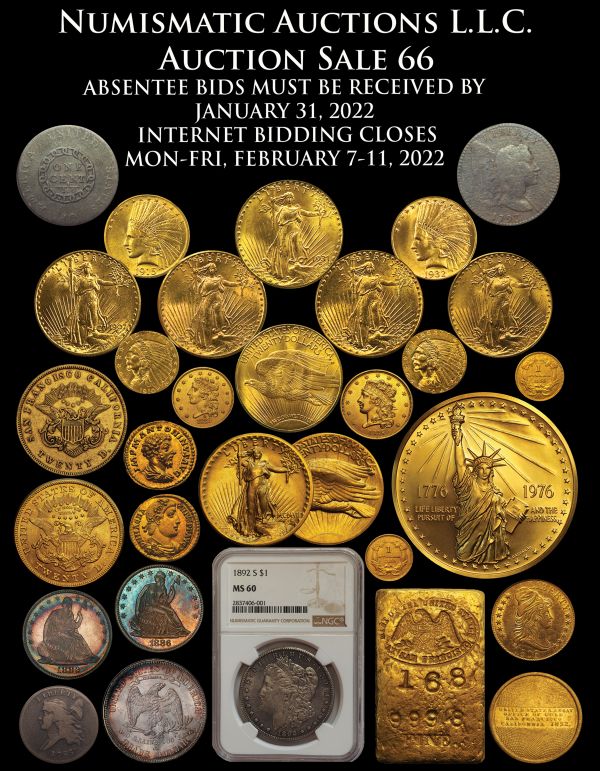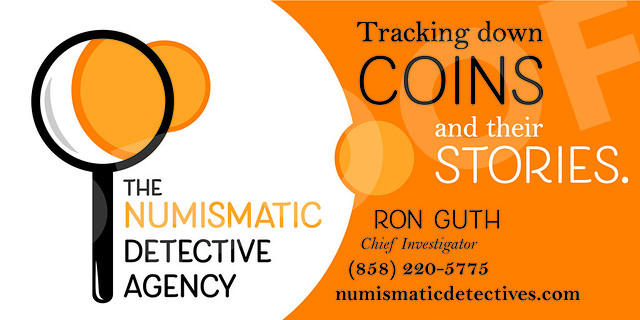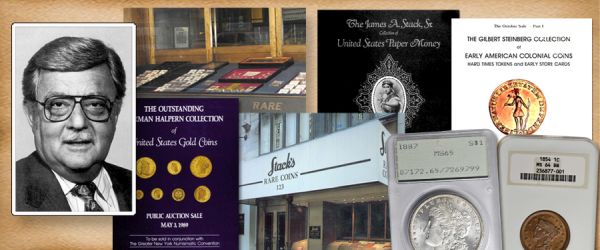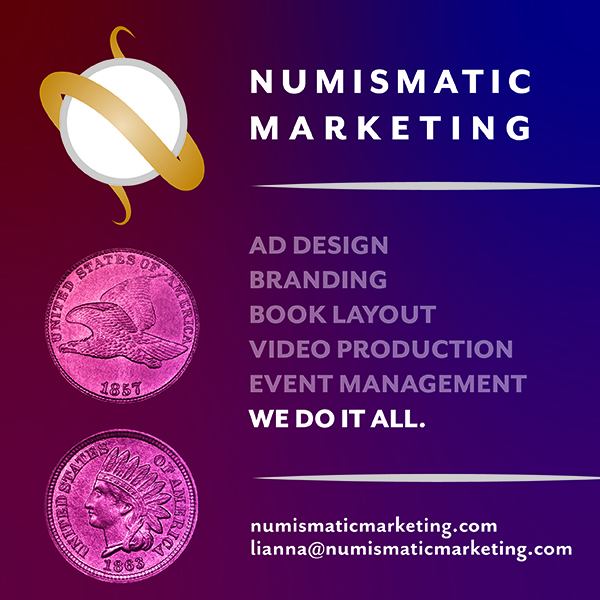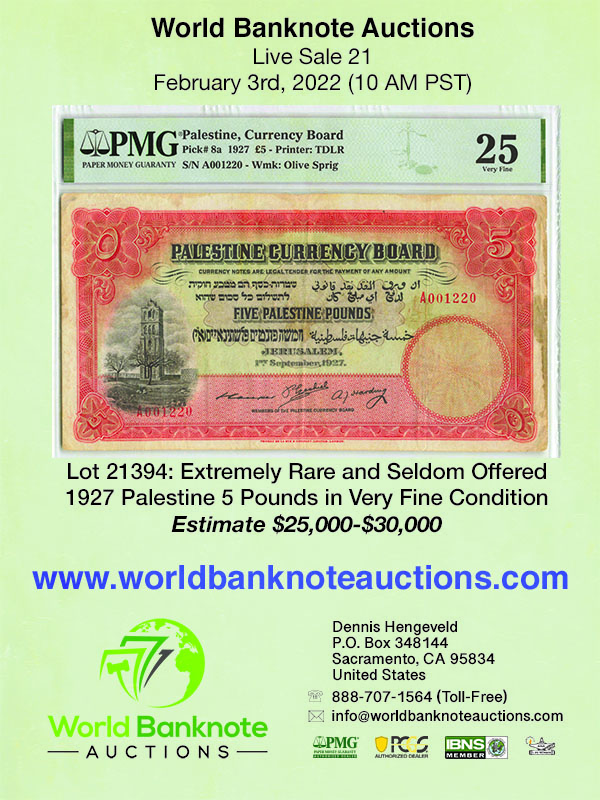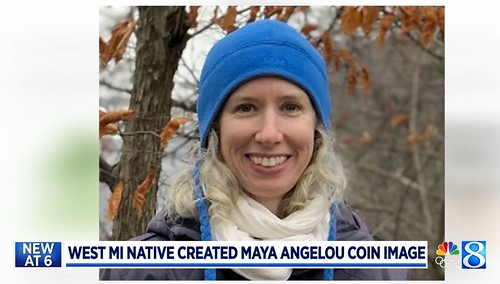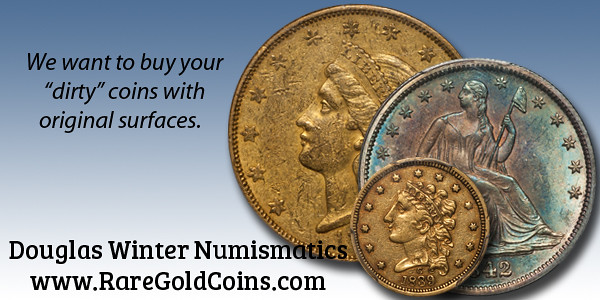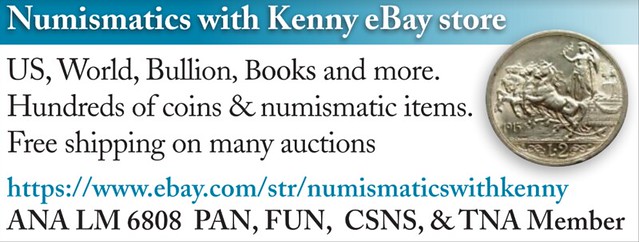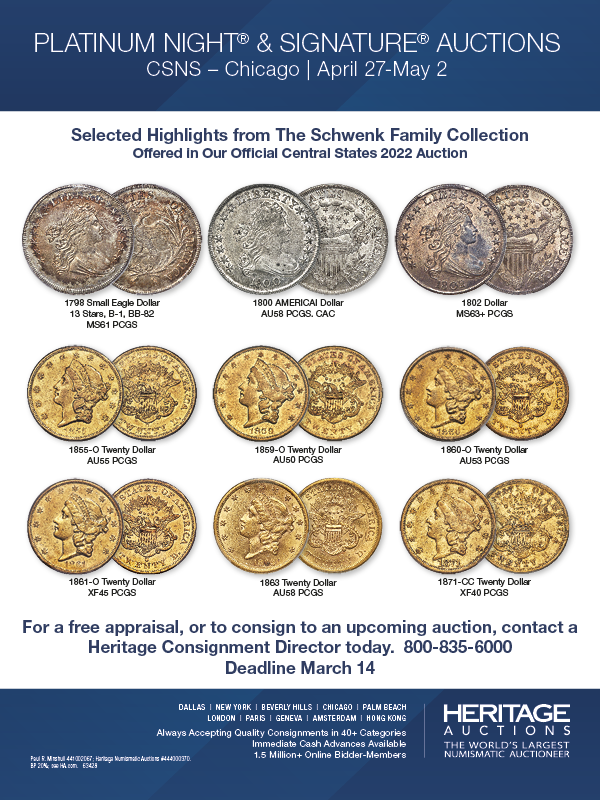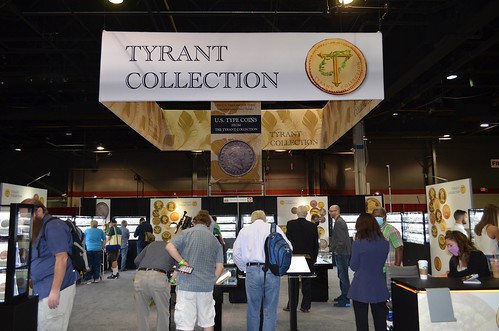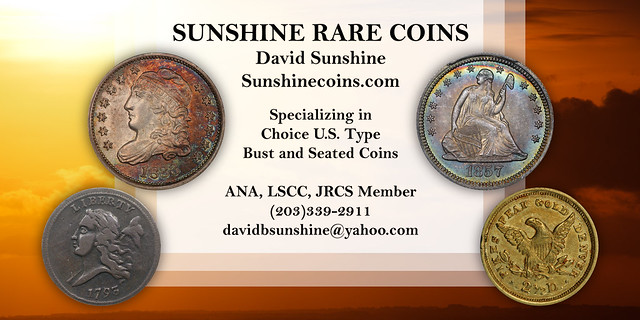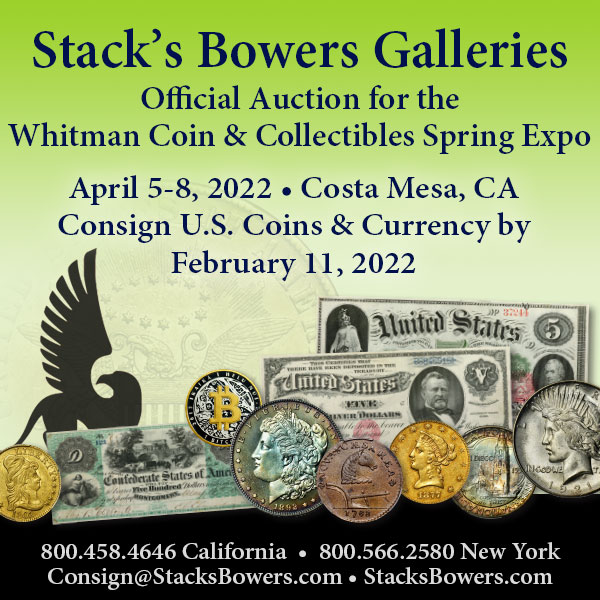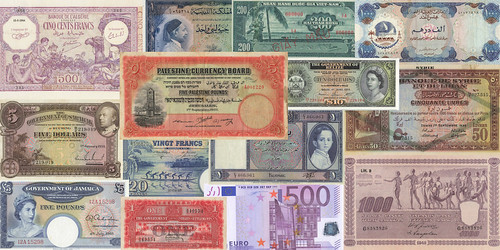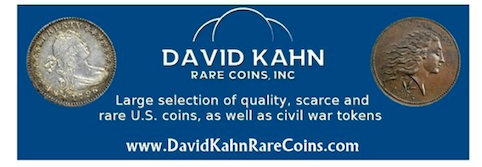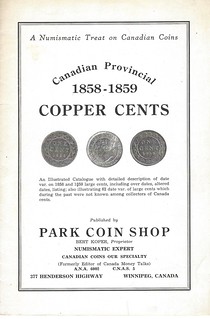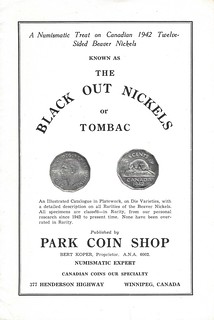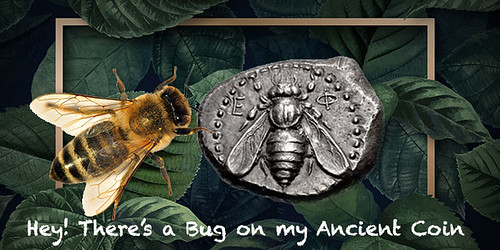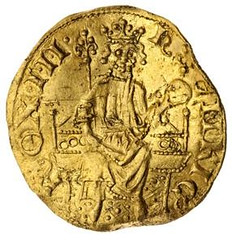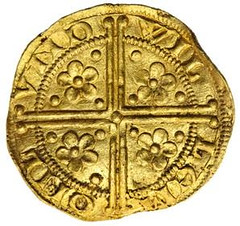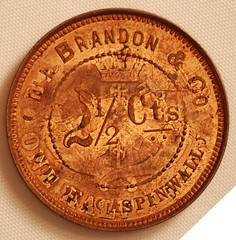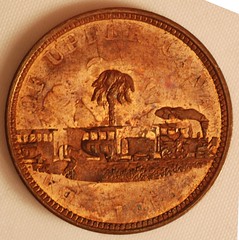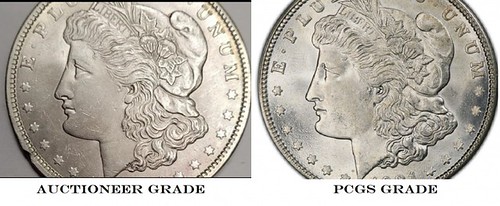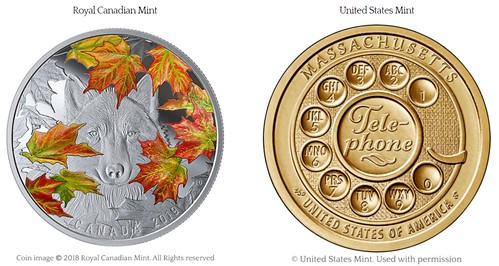
Visit our NBS Sponsors


About UsThe Numismatic Bibliomania Society is a non-profit association devoted to the study and enjoyment of numismatic literature. For more information please see our web site at coinbooks.org SubscriptionsThose wishing to become new E-Sylum subscribers (or wishing to Unsubscribe) can go to the following web page link MembershipThere is a membership application available on the web site Membership Application To join, print the application and return it with your check to the address printed on the application. Print/Digital membership is $40 to addresses in the U.S., and $60 elsewhere. A digital-only membership is available for $25. For those without web access, write to: Charles Heck, Treasurer AsylumFor Asylum mailing address changes and other membership questions, contact Chuck at this email address: treasurer@coinbooks.org SubmissionsTo submit items for publication in The E-Sylum, write to the Editor at this address: whomren@gmail.com BUY THE BOOK BEFORE THE COINSale CalendarWatch here for updates! |
- WAYNE'S WORDS: THE E-SYLUM JANUARY 23, 2022
- SOLIDUS LITERATURE AUCTION 93
- NEW BOOK: GUIDE BOOK OF QUARTER EAGLE GOLD
- NEW BOOK: SPANISH CUARTILLOS
- NEW BOOK: COINS OF CANADA 40TH EDITION
- NEW BOOK: ERRORS ON CANADIAN COINS, VOLUME 2
- HENDIN AND WACKS SHARE 2022 SHEKEL PRIZE
- STRONG STATE OF THE NUMISMATIC BOOK MARKET
- NNP ADDS EARLY AMERICAN NUMISMATICS
- THE 1861-O
CONFEDERATE
HALF DOLLARS - VIDEO: DR. DAVID CLOSE
- CASTLECOMER COLLIERY COUNTERMARKS
- WEGEFARTH'S GOLD AND SILVER DOLLAR SALOONS
- ELIASBERG 1850 BALDWIN & CO. $5 REDISCOVERED
- NOTES FROM E-SYLUM READERS: JANUARY 23, 2022
- WHO WAS J. M. WALKER?
- NEW REPORT EXAMINES U.S. MINT RACIAL TENSIONS
- VOCABULARY TERM: HEADER, HEADER BAR
- FERNAND DAVID (1861-1927)
- HARVEY STACK'S NUMISMATIC FAMILY, PART 113
- NYT: HARVEY G. STACK DIES AT 93
- DAMSTRA ON DESIGNING MAYA ANGELOU QUARTER
- LIPSON HEADS OTTAWA NUMISMATIC SOCIETY
- NYT FEATURES MILLENNIAL AND GEN Z COLLECTORS
- FRANK ROBINSON AT THE NEW YORK INTERNATIONAL
- LONG BEACH TYRANT COLLECTION U.S. TYPE EXHIBIT
- ANA COURSE: NUMISMATIC DIGITAL IMAGE EDITING
- KÜNKER SALE 360: COLLECTION OF A CONNOISSEUR
- WORLD BANKNOTE AUCTIONS SALE 21
- WAYNE'S NUMISMATIC DIARY: JANUARY 23, 2022
- BUGS ON ANCIENT COINS
- FINDING THE HENRY III GOLD PENNY
- QUERY: MYSTERY ASPINWALL TOKEN
- LOOSE CHANGE: JANUARY 23, 2022
- FEATURED WEB SITE: EMILY S. DAMSTRA
Click here to read the thin version on the web
Click here to subscribe
Click here to access the complete archive
To comment or submit articles, reply to whomren@gmail.com
Content presented in The E-Sylum is not necessarily researched or independently fact-checked, and views expressed do not necessarily represent those of the Numismatic Bibliomania Society.
WAYNE'S WORDS: THE E-SYLUM JANUARY 23, 2022
 New subscribers this week include:
Ken Shupe, courtesy Steve Shupe; and
Sandy Gatchell, courtesy Martin Kaplan;
Welcome aboard! We now have 6,740 subscribers.
New subscribers this week include:
Ken Shupe, courtesy Steve Shupe; and
Sandy Gatchell, courtesy Martin Kaplan;
Welcome aboard! We now have 6,740 subscribers.
Thank you for reading The E-Sylum. If you enjoy it, please send me the email addresses of friends you think may enjoy it as well and I'll send them a subscription. Contact me at whomren@gmail.com anytime regarding your subscription, or questions, comments or suggestions about our content.
This week we open with one numismatic literature sale, four new books, the Shekel book prize, updates from the Newman Numismatic Portal, notes from E-Sylum readers, and more.
Other topics this week include the 1861 New Orleans "Confederate" half dollars, an 1850 Baldwin & Co. $5 gold piece, racial tensions at the U.S. Mint, collector Fernand David, coin designer Emily Damstra, the New York International, the Tyrant Collection, auction previews, and imagining a Home Depot but filled with coins.
To learn more about Quarter Eagle Gold coins, Spanish Cuartillos, errors on Canadian coins, the state of the numismatic book market, the Gold and Silver Dollar Saloons, U.S. Sanitary Fair numismatic offerings, J. M. Walker's Gold Buying Guide, Jacob Lipson, Lianna Spurrier, Pepin the Short, Albert the Bear, the King of Siam proof set, and bugs on ancient coins, read on. Have a great week, everyone!
Wayne Homren
Editor, The E-Sylum
SOLIDUS LITERATURE AUCTION 93
The Solidus firm in Munich is devoting their 93rd auction sale to numismatic literature. Here's the announcement. -Editor
Literature auction 93 on Sunday, February 6th, 2022 at 5 p.m. CET: Selected literature on numismatics from the Middle Ages and Modern times
With almost 600 lots, our literature auction offers an excellent opportunity to supplement your own numismatic library:
To our literature auction on Auex
To our literature auction on Numisbids
Here you can download a pdf with all books (without pictures)
NEW BOOK: GUIDE BOOK OF QUARTER EAGLE GOLD
Whitman has published Dave Bowers's new book on Quarter Eagle Gold coins. -Editor
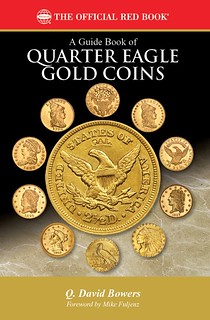 Whitman Publishing announces the upcoming release of A Guide Book of Quarter Eagle Gold Coins, by Q. David Bowers. The new 448-page book is volume 26 in Whitman's
Whitman Publishing announces the upcoming release of A Guide Book of Quarter Eagle Gold Coins, by Q. David Bowers. The new 448-page book is volume 26 in Whitman's Bowers Series
of numismatic references. It will debut in March 2022, available from booksellers and hobby shops nationwide, for $29.95. In the meantime, it is available for preorder (including at www.Whitman.com and online bookstores).
The quarter eagle, face value of $2.50, occupies an unusual place in American currency,
Bowers says. Unlike larger gold coins, it was too small to be commonly used in export and international trade. It also never became popular in day-to-day commerce (though, like the smaller gold dollar, it was frequently given as a Christmas gift). Despite this,
Bowers says, the quarter eagle was minted almost continuously for more than 130 years, starting in 1796, with six different design styles over the years.
NEW BOOK: SPANISH CUARTILLOS
Author Emilio Ortiz submitted this announcement of his new books on the Spanish Cuartillos. Thanks. -Editor
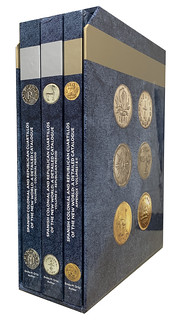 I am pleased to announce that the Cuartillo catalogues
I am pleased to announce that the Cuartillo catalogues SPANISH COLONIAL &
REPUBLICAN CUARTILLOS OF THE NEW WORLD: A DETAILED CATALOGUE
, have
been printed and are ready to be mailed.
These catalogues represent an in-depth research of the totality of Cuartillos struck from 1505 to 1909 by every Colonial and Republican Mint with enlarged images of each coin. The set consists of Volume I covering the Spanish Colonial Period, Volume II covering the Republican Period and an Appendix for Volumes I & II.
Each set is hardbound and numbered. Orders are being accepted for immediate shipment at a price of US $640 or Euros 600 per set which includes shipping. For payment instructions please contact the author at cuartosdereal@gmail.com.
NEW BOOK: COINS OF CANADA 40TH EDITION
The new edition of Coins of Canada is now available. -Editor
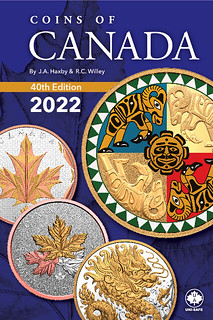 The 40th edition of The Coins of Canada is a complete, one-volume library of Canadian coins, tokens and paper money, including major varieties. Available in English and French.
The 40th edition of The Coins of Canada is a complete, one-volume library of Canadian coins, tokens and paper money, including major varieties. Available in English and French.
Features:
- Complete Canadian decimal coinage
- Pre-Confederation Provincial issues
- All Canadian Mint silver and gold collector's issues
- Canadian colonial tokens
- Dominion of Canada banknotes 1867-1935
- Bank of Canada paper money 1935 to date
- Latest retail market values by grade
- Detailed mintage figures and statistics
- Much historical background and pertinent information
- Condition Grading Guides for Canadian coins
- Includes a glossary of numismatic terms
2022 Coins of Canada – 40th Edition
BY J.A. HAXBY & R.C. WILLEY
ISBN 10: 1-894763-77-6
ISBN 13: 978-1-894763-77-6
Weight: 1.25 kg
Dimensions: 23 × 18.5 × 4 cm
$31.95
NEW BOOK: ERRORS ON CANADIAN COINS, VOLUME 2
Howard Engel of Richard Stockley Books forwarded this announcement of the new volume of Christian Houle's books on Canadian coin errors and varieties. Thank you. -Editor
Stockley Books offers latest publications on Canadian QEII 1-cent & 5-cent varieties by Christian Houle of Quebec
Howard R. Engel, Proprietor of Richard Stockley Books (RSB) of Winnipeg, Manitoba, Canada offers the latest publications on errors and varieties of both Queen Elizabeth the Second 1-cent and 5-cent Canadian coins all signed by the author, Christian Houle of Quebec. Spiral bound (lays flat) with bilingual text (in English and French) replete with many full-colour close-up images and organized chronologically with the author's own numbering system, they are a must have for any serious collector of the following Queen Elizabeth II issues: 1-cent pieces from 1953 to 2012 when this series was discontinued by the Royal Canadian Mint (published in 2018) and 5-cent pieces from 1953 to 1981 (published in 2021).
HENDIN AND WACKS SHARE 2022 SHEKEL PRIZE
The 2022 Shekel Prize competition was a dead heat this year between two excellent new books. Here's the announcement. -Editor
The 2022 Shekel Prize, for the best book on the subject of Ancient Judaean, Holy Land, Israel, or Jewish Numismatics, is being shared by two books: Guide to Biblical Coins, 6th Edition
by David Hendin and The Handbook of Biblical Numismatics, 45th Anniversary Edition
by Mel Wacks. Dr. Ira Rezak, Acting Chair of the Shekel Prize Committee, announced that the decision was unanimous, after Hendin and Wacks recused themselves.
STRONG STATE OF THE NUMISMATIC BOOK MARKET
In this Coin Update article, Dennis Tucker of Whitman Publishing discusses the strong state of the numismatic book market in 2021. -Editor
The Handbook of United States Coins, popularly known as the Blue Book,
celebrates 80 years of publication in 2022. It gives wholesale prices for U.S. coins—how much dealers are paying for individual coins, on average.
Book sales in the United States were very strong in 2021, according to data from NPD BookScan, which reports on about 85 percent of print sales nationwide (through all major retailers including Amazon, Barnes & Noble, Books-A-Million, Target, Walmart, and independent bookstores).
NNP ADDS EARLY AMERICAN NUMISMATICS
The latest additions to the Newman Numismatic Portal are early issues of the Journal of Early American Numismatics. Project Coordinator Len Augsburger provided the following report. -Editor
American Numismatic Society Opens Journal of Early American Numismatics
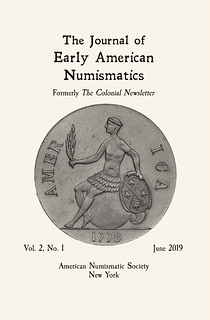 The American Numismatic Society has made available the first four semi-annual issues of the Journal of Early American Numismatics (JEAN), covering the years 2018-2019. Editor Chris McDowell notes that ANS intends to open additional issues in the future, maintaining a three-year lag with the print publication. The Journal is the successor publication to The Colonial Newsletter (1960-2017). Topics covered in the 2018 and 2019 issues include a wide variety of colonial issues including Connecticut and Fugio cents, Rhode Island ship medals, Spanish colonial coinage, and the ever provocative Continental dollar. Thanks to ANS Director of Publications Andrew Reinhard and JEAN Editor Chris McDowell for their assistance with this title.
The American Numismatic Society has made available the first four semi-annual issues of the Journal of Early American Numismatics (JEAN), covering the years 2018-2019. Editor Chris McDowell notes that ANS intends to open additional issues in the future, maintaining a three-year lag with the print publication. The Journal is the successor publication to The Colonial Newsletter (1960-2017). Topics covered in the 2018 and 2019 issues include a wide variety of colonial issues including Connecticut and Fugio cents, Rhode Island ship medals, Spanish colonial coinage, and the ever provocative Continental dollar. Thanks to ANS Director of Publications Andrew Reinhard and JEAN Editor Chris McDowell for their assistance with this title.
Link to Journal of Early American Numismatics on Newman Portal:
https://nnp.wustl.edu/library/publisherdetail/544833
THE 1861-O CONFEDERATE
HALF DOLLARS
Newman Numismatic Portal Project Coordinator Len Augsburger provided an additional report on NNP resources concerning the 1861-O Confederate
Half Dollars.
-Editor
The 1861-O half dollar is an exceptionally popular issue, with pieces variously struck under Union, Louisiana, and Confederate authority. The recovery of thousands of examples from the SS Republic shipwreck, discovered in 2003, only adds to the lore of the popular issue. Randy Wiley detailed the 1861-O half dollar varieties in the November 2005 and November 2006 editions of the Gobrecht Journal, and these two issues are likely the most referenced in the entire series. Wiley's first article outlined the emission sequence and the 15 die marriages for this issue and presented a step-by-step attribution guide.
VIDEO: DR. DAVID CLOSE
These are selections from the David Lisot Video Library that feature news and personalities from the world of coin collecting. David has been attending coin conventions since 1972 and began videotaping in 1985. The Newman Numismatic Portal now lists all David's videos on their website at:
https://nnp.wustl.edu/library/multimediadetail/522852
Here's an interview with variety collector Dr. David Close. -Editor
Medical Doctor Coin Collector Gives COVID Advice.
VIDEO: 3:17.
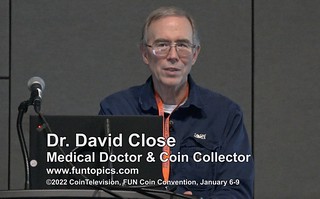 Dr. David Close, Medical Doctor and Coin Collector, David Lisot, Interviewer, CoinTelevision.com. January 6-9, 2022.
Dr. David Close, Medical Doctor and Coin Collector, David Lisot, Interviewer, CoinTelevision.com. January 6-9, 2022.
Dr. David Close is a general medical practitioner. He is also an avid coin collector focusing on varieties and especially Peace dollar VAM's. Dr. Close was asked about the COVID virus and how coin collectors can best protect themselves.
David adds:
"This video was shot at the Florida United Numismatists Convention earlier this month on January 8th 2022. Dr. David Close has been a speaker at FUN for many years as an expert on coin varieties. The COVID virus was still infecting people in Florida and across America. I asked Dr. Close about what collectors could do to protect themselves from getting sick. Dr. Close's opinion may be worthwhile whatever your politics or perspective."
An excerpt of the video is available for viewing on the Coin Television YouTube Channel at:
https://youtu.be/U9R05rBw5Ro
CASTLECOMER COLLIERY COUNTERMARKS
Last week Eric Hodge asked for a copy of a photo of an 8 reales countermarked for Castlecomer in Ireland (in the Krause Standard Catalog of World Coins 1801-1900 published in 1999 2nd edition on page 729).
Ted Puls and Edward Cohen provided images, but these unfortumately were not the specific photo sought. Meanwhile, other readers provided links to other relevant images. -Editor
Bill Dalzell of Classical Numismatic Group writes:
"Our firm sold one back in January 2015."
WEGEFARTH'S GOLD AND SILVER DOLLAR SALOONS
Julia Casey submitted these notes on Gus Wegefarth's Gold and Silver Dollar Saloons in Buffalo, NY. Thanks! -Editor
I read about the Gold and Silver Dollar Saloons in Buffalo and wanted to pass along what I found in an article published in the Buffalo Commercial (June 26 1919). This article included the attached illustration, unfortunately it is not the clearest of scans but it shows some events in the history of the saloons. One scene depicts a man on the floor with a cutting tool and the caption "A FAVORITE INDOOR SPORT OF THOSE DAYS" Digging silver dollars from the floor at Wegefarth's." Others note that "A huge replica of a dollar was imbedded in the sidewalk in front of the place" and "The bar was dotted with gold pieces."
ELIASBERG 1850 BALDWIN & CO. $5 REDISCOVERED
Ron Guth is the Chief Investigator at the Numismatic Detective Agency, and this week he published a blog article on a recent discovery - a Baldwin & Co. gold piece from the Eliasberg collection. Nice find! -Editor
Recently, a client asked me to track the provenance on his 1850 Baldwin & Co. $5. Heritage Numismatic Auctions sold the coin -- in a PCGS MS61 holder with a CAC sticker -- as part of the Buffalo Bayou Collection in the January 2022 F.U.N. Sale (lot 4490). The catalog description listed a prior provenance to the Riverboat Collection, also sold by Heritage in April 2014. No additional prior provenance was offered. Since this was a significant condition-rarity example, the client was curious to know if the coin had appeared in any earlier sales. Rarities like this seldom just pop up out of nowhere, so a search is warranted.
NOTES FROM E-SYLUM READERS: JANUARY 23, 2022
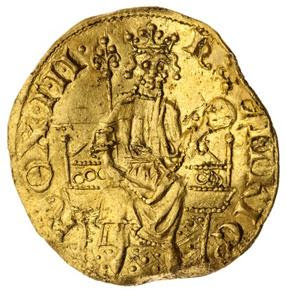 Gold Penny of Henry III Die Types
Gold Penny of Henry III Die Types
Martin Purdy of Upper Hutt, New Zealand writes:
"I was struck by the shape of the E in REX in this piece, compared to the E in HENRIC, for example - it looks more like an O with a partial horizontal line added. Despite only eight examples being known, I've found three different forms of that letter on this denomination in a quick web search, one a more traditional Lombardic E and another looking more like a couple of superimposed S's. The original mintage must have been relatively large, given the existence of multiple die types, so I wonder how many more escaped the melting pot."
Good question. Time will tell! To read about the metal detectorist who found it, see an article elsewhere in this issue. -Editor
To read the earlier E-Sylum article, see:
A NEW GOLD PENNY OF HENRY III
(https://www.coinbooks.org/v25/esylum_v25n03a24.html)
Other topics this week include Puebla de Los Angeles, U.S. Sanitary Fair Numismatics, Whitman Coin Printing Blocks, and the "Prince Andrew Commemorative Coin". -Editor
THE BOOK BAZARRE
WHO WAS J. M. WALKER?
J. M. Walker's $1 and $3 Gold Buying Guide
Knowing that we enjoy numismatic ephemera, Roger Burdette passed along his January 23, 2020 post on the NGC Forum about an unusual circa 1900 gold coin buying guide. -Editor
Enterprising coin dealer J. M. Walker had the idea to distribute a card & envelope combination soliciting purchase of $1 and $3 gold coins from merchants and bankers. In early 1900 he wrote to the Mint Bureau requesting permission to quote mintage quantities for both coins on his promotional card. He was told it was OK to do, and when printing was complete he sent the mint a sample. The 3x5 card is two-sided and intended to be attached to a similar sized envelope. Merchants could put any gold they found in the envelope and send it to Mr. Walker for his "good premium" offer.
NEW REPORT EXAMINES U.S. MINT RACIAL TENSIONS
The New York Times published an article about a new report on racial tensions at the U.S. Mint. This is not a new topic - see the earlier article linked below. -Editor
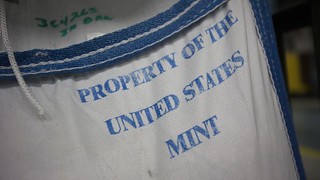 The United States Mint celebrated a milestone this month when it announced the first shipment of a new batch of quarters bearing the image of the writer and poet Maya Angelou, the first Black woman to be depicted on the 25-cent coin.
The United States Mint celebrated a milestone this month when it announced the first shipment of a new batch of quarters bearing the image of the writer and poet Maya Angelou, the first Black woman to be depicted on the 25-cent coin.
The announcement came weeks after President Biden said he would nominate Ventris C. Gibson to lead the Mint, where, if confirmed, she would serve as its first Black director.
But beneath the public signs of social progress is an agency that has struggled for years with racial tension, with Black employees saying they feel threatened, marginalized and professionally disadvantaged. While instances of racism at the Mint have surfaced in previous years, a new internal report that was reviewed by The New York Times depicts an institution rife with tumult over allegations of racist behavior.
VOCABULARY TERM: HEADER, HEADER BAR
Here's another entry from Dick Johnson's Encyclopedia of Coin and Medal Terminology. -Editor
Header, Header Bar. The top portion of a multielement medal or badge, usually the portion with the pinback or other fastener from which all other elements are suspended. The header bar contains some means from which other elements are suspended, as one or more loops, or a ribbon fob. The header is generally in horizontal format, but it can be any size or shape; it is often highly decorated and silhouetted. It is designed to supplement the theme of the medal or badge, customarily a pendant medal. Headers can be struck or cast, can be solid or thin struck as a shell; since the item is intended to be worn, shell headers have the advantage of lesser weight.
FERNAND DAVID (1861-1927)
Monaco auction house Editions Victor Gadoury is offering the collection of Fernand David in a March 2022 sale. The catalogue contains a profile of the collector (in French) by Alain Weil. Here's a Google-translated version (with some minor additional edits). It's rough, but provides an interesting portrait of an important collector. It's remarkable that so much of his collection remained intact until today. -Editor
1861 - 1927
Revealing a collection
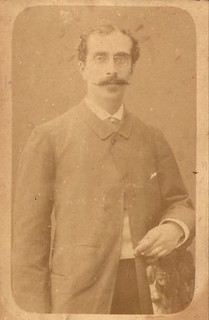 The collection that I have the honor to present, in collaboration with my friends and colleagues Pastrone, is one of the finest entrusted to me in my long career. It is also one of the most mysterious. It belongs to two sisters who are, on the maternal side, the granddaughters of a famous collector in his time, Fernand David. Unfortunately, very little information about the life of this numismatist has come down to us.
The collection that I have the honor to present, in collaboration with my friends and colleagues Pastrone, is one of the finest entrusted to me in my long career. It is also one of the most mysterious. It belongs to two sisters who are, on the maternal side, the granddaughters of a famous collector in his time, Fernand David. Unfortunately, very little information about the life of this numismatist has come down to us.
Curiously, this collection leaves an impression of being unfinished despite the quality and rarity of its coins. It seems to have the ambition to tackle a very large number of areas (ancient coins, French, foreign, tokens, badges, medals, etc…) but leaving inexplicable gaps in many of them. Thus, in ancient coins, Greece is almost absent and Gaul is represented by only two coins whereas the Roman coinage impresses with its long series of rare and superb aurei. For feudal coinage, Lorraine shines with more than twenty gold coins while other provinces are very poorly represented or even completely absent, such as Brittany. We find such oddities for French and foreign gold coins as well as for silver coins.
HARVEY STACK'S NUMISMATIC FAMILY, PART 113
Good news for fans of the late Harvey Stack's numismatic memoirs - Stack's Bowers has a backlog of articles and will continue publishing them. In this one he discusses an unfortunately not uncommon 1993 incident that fueled his longtime rage against the marketing practices of the U.S. Mint. -Editor
Harvey Stack loved to tell stories and his favorites were those about his family and the history of Stack's. While he passed away on January 3 of this year, he had already penned his remembrances through 1999. We believe Harvey would want these articles to be read and enjoyed and so we are pleased to continue the story of his life in numismatics.
1993 was an important anniversary year for Stack's as it marked 60 years since Joseph and Morton Stack opened their numismatic retail store in New York City. It was also the 40th anniversary of the opening of the shop on West 57th Street, where the company was located after having expanded and moved a couple of times in the 20 intervening years. Over time, Stack's, at whatever address, was considered a clubhouse for coin collectors, a place to buy and sell, to meet with fellow enthusiasts, and to use the extensive library the firm had built up over the years. All of us in the Stack family welcomed those who walked through the door, not just as buyers and sellers, but also as fellow numismatists who took the time to teach us what they had learned in their years of collecting.
NYT: HARVEY G. STACK DIES AT 93
The New York Times published an obituary of Harvey this week. Here's an excerpt - see the complete article online (and spot the errors...) Thanks to Arthur Shippee for passing this along. -Editor
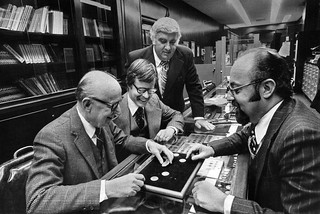 Harvey G. Stack, the patriarch of the family firm that bills itself as the nation's largest rare coin business, died on Jan. 3 in New York. He was 93.
Harvey G. Stack, the patriarch of the family firm that bills itself as the nation's largest rare coin business, died on Jan. 3 in New York. He was 93.
His death was confirmed by his son, Larry.
Mr. Stack joined Stack's Rare Coins as a teenager in 1947, 14 years after his father and uncle transformed what his great-grandfather had founded in 1858 as a foreign exchange house in Lower Manhattan into a dealership devoted exclusively to collectible currency.
DAMSTRA ON DESIGNING MAYA ANGELOU QUARTER
I misplaced this article or would have included it last week along with the piece on the new Maya Angelou Quarter. A Michigan television station interviewed the coin's designer Emily Damstra. -Editor
A West Michigan native is the artist behind something people across the country will have in their pockets and on their dressers.
Emily Damstra is the artist who created the image on the brand-new Maya Angelou coin.
I was very excited. I was ecstatic,
Damstra said when she learned her art had been chosen to be on the first coin released in the American Women Quarters Program.
LIPSON HEADS OTTAWA NUMISMATIC SOCIETY
Canadian Coin News published an article about Jacob Lipson and his presidency of the Ottawa Numismatic Society. With permission, we're republishing it here. Congratulations! -Editor
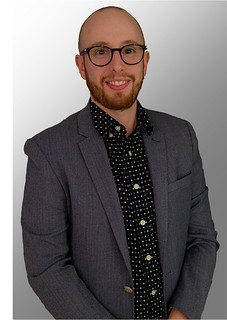 Montréal dealer Jacob Lipson, the owner of Jacob Lipson Rare Coins, has been installed as the new president of the Ottawa Numismatic Society (ONS).
Montréal dealer Jacob Lipson, the owner of Jacob Lipson Rare Coins, has been installed as the new president of the Ottawa Numismatic Society (ONS).
Steve Woodland, the society's past president, handed the reigns to Lipson during a Dec. 20 virtual meeting. He's joined on the ONS executive by Treasurer Wilf Lauber and Secretary Randy Marquette.
Lipson has more than a decade of experience as a professional numismatist, including as an independent consultant with the Texas-based Heritage Auctions. Through his firm, he offers Canadian and U.S. decimal coins plus a wide variety of scarce historical medals. He's also a member of the Royal Canadian Numismatic Association, Ontario Numismatic Association, Montréal Numismatic Society, Lakeshore Coin Club, Association de Numismates et Philatelistes de Boucherville, American Numismatic Association, Numismatic Literary Guild and Medal Collectors of America (MCA), the latter of which he serves as a board member.
NYT FEATURES MILLENNIAL AND GEN Z COLLECTORS
Brooklyn-based illustrator Julia Rothman and writer / filmmaker Shaina Feinberg published a New York Times column on today's younger numismatists. Here's a sampling - see the complete article online. Excellent treatment! Congrats to all, including Lianna Spurrier, who we've featured before with her great videos and masterful hosting of the NNP Symposium. -Editor
THE BOOK BAZARRE
FRANK ROBINSON AT THE NEW YORK INTERNATIONAL
I didn't make it to the New York International show this year, so in lieu of a Diary article here's an excerpt from dealer Frank Robinson's excellent blog post. Thanks for the report! -Editor
The New York International Coin Show is the premier event. It used to be each December; until 2001 when there was a little problem with the location — the World Trade Center. Organizers managed to scramble a new venue for January, so it's been January ever since. It started in 1972, was cancelled in 2021 due to Covid, but went ahead this year — the fiftieth. I've attended every one.
It's truly international, many dealers from overseas, which is what makes it great. Though fewer than usual this time, with Covid still inhibiting travel.
LONG BEACH TYRANT COLLECTION U.S. TYPE EXHIBIT
Looking forward to the February Long Beach show, here's the press release for the planned exhibit of U.S. coins from the Tyrant Collection. It's a fabulous exhibit, well designed and showcased. Amazing collection of amazing coins. -Editor
The public will be able to see the superb type set of more than 400 U.S. coins from the acclaimed Tyrant Collection (www.TheTyrantCollection.com) for the first time on the West Coast at the Long Beach Expo collectibles show, February 17-19, 2022. The Expo will be held in Hall C of the Long Beach, California Convention Center, 100 S. Pine Ave.
ANA COURSE: NUMISMATIC DIGITAL IMAGE EDITING
A mini-seminar taught by Michael Kodysz at the 2022 Summer Seminar in Colorado Springs will cover the basics of digital image editing for numismatists. -Editor
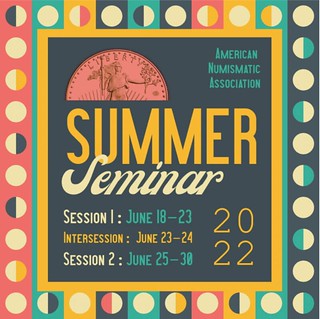 Digital Image Editing for Numismatics: Getting Your Obverses & Reverses Together is a new six-hour mini-seminar offered by the American Numismatic Association at the 2022 Summer Seminar in Colorado Springs. The mini-seminar course will cover the basics of digital image editing for collectors, dealers, authors, and researchers. While the course is geared primarily toward novices unfamiliar with the relevant software, all experience levels are welcome.
Digital Image Editing for Numismatics: Getting Your Obverses & Reverses Together is a new six-hour mini-seminar offered by the American Numismatic Association at the 2022 Summer Seminar in Colorado Springs. The mini-seminar course will cover the basics of digital image editing for collectors, dealers, authors, and researchers. While the course is geared primarily toward novices unfamiliar with the relevant software, all experience levels are welcome.
Attendees will learn how to organize, edit, and modify coin and paper money images for the purposes of print and web publishing, cataloging, personal reference, and exhibiting. Topics covered will include an overview of software options and the basics of Adobe Photoshop®; best practices for file organization, formatting, and image resolution; and a discussion of ethical guidelines.
Demonstrations will include the basics of color correction, how to add or remove backgrounds from images, and how to create special effects such as drop shadows and reflections. Students will gain hands-on practice in combining separate obverse and reverse photos of the same coin into a single seamless composite image. It is recommended that students bring their own digital images for hands-on practice, but practice images will also be provided by the instructor. It is highly recommended that students bring their own laptop with bring their own laptop with Adobe Photoshop® to familiarize themselves with the software.
KÜNKER SALE 360: COLLECTION OF A CONNOISSEUR
Here's the press release for Künker's upcoming Auction 360. -Editor
Künker Presents the Collection of a Connoisseur
On 1 and 2 February 2022, Künker will hold its auction 360 as an eLive Premium Auction. It contains German coins and medals of top quality – with estimates from the two- to the four-digit range.
Although a coin has to fetch a six-digit result to make headlines in the daily press these days, the following statement still holds true: you do not need a lot of money to take pleasure in collecting coins. Künker's eLive Premium Auction 360 proves it. Estimates for highly interesting coins of perfect quality start at only 10 euros. Especially lovers of interesting fractional coins of the 18th and 19th centuries will find what they are looking for in this auction, even though there are obviously a lot of other treasures among the wide offer. It ranges from perfectly preserved coins from the Middle Ages to interesting talers and fractional pieces of the Holy Roman Empire to coins of the German Empire.
WORLD BANKNOTE AUCTIONS SALE 21
Here's the press release for World Banknote Auctions upcoming Live Sale 21. Some beautiful and interesting banknotes here. -Editor
This week World Banknote Auctions has listed Live Sale 21, which closes on February 3, 2022, with live bidding that day at 1 PM Eastern / 10 AM Pacific. Live Sale 21 offers 641 lots from around the world, with select highlights including a strong selection of banknotes from the Middle East, the first part of a nice Scottish collection and a strong selection of banknotes from Southeast Asia.
WAYNE'S NUMISMATIC DIARY: JANUARY 23, 2022
Tuesday January 18th was the monthly meeting of my Northern Virginia numismatic social group, Nummis Nova. I was co-host with our newest regular member Daryl Haynor. We chose Pazzo Pomodoro, an Italian restaurant in Vienna.
I was the second to arrive and took a seat across from Tom Kays. Before long we were joined by Robert Hoppensteadt, Wayne Herndon, Chris Neuzil, Roger Burdette, Steve Bishop and Julian Leidman. Daryl had returned from the FUN show with a case of COVID and couldn't attend. Regulars Dave Schenkman and Eric Schena were absent as well. We weren't the only club meeting there for dinner - a man came up to our table and asked if we were with the model railroading group.
I passed around several items as exhibits, including a consecutive pair of $10 Star notes I'd found at an ATM. Most of my material, as usual, was numismatic literature. I shared a binder filled with several recent additions to my ephemera collection, mostly from a recent purchase from Howard Engel at Richard Stockley Books in Canada.
Numismatic Pamphlets and Other Ephemera
Here are some of the ephemeral items I displayed, including pamphlets on Canadian coinage and Alaskan parchment scrip.
BUGS ON ANCIENT COINS
Steve Benner published this interesting CoinWeek article about bugs on ancient coins. Here's an excerpt - see the complete article online. -Editor
I have seen several articles on ancient coins discussing animals such as mammals and birds, but it's time the more numerous members of the animal kingdom get some attention. I'm talking, of course, about insects – with insects
referring here to the six-legged variety.
FINDING THE HENRY III GOLD PENNY
Howard Berlin passed along this article about the finder of that Henry III gold penny. Thanks. -Editor
An amateur metal detectorist who discovered what is thought to be one of England's first gold coins could soon see a payday of nearly half a million dollars.
QUERY: MYSTERY ASPINWALL TOKEN
Dave Bowers asked for research assistance in a Coin Update article this week. I couldn't agree more with his opening line, and I'm sure many of our readers agree. Can anyone help with this one? -Editor
I enjoy numismatic research. The more obscure the subject, the better.
Puzzling me for a long time is the 28-millimeter token with COLL BRANDON & CO, 2 ½ Cts. ASPINWALL on one side and a railroad train on the other.
LOOSE CHANGE: JANUARY 23, 2022
Here are some additional items in the media this week that may be of interest. -Editor
On Coin Update Michael Bugeja published a lesson in grading for beginning buyers new to online auctions. Here's an excerpt - see the complete article online. -Editor
Increasingly I am seeing bidders paying PCGS/NGC sight unseen
prices for obviously substandard coins. These can be raw or holdered ones by lower-tier companies. Sometimes the auctioneer just throws out a high grade. Sometimes they add adjectives like superb gem
or super gem.
In worst-case scenarios, they add a PCGS/NGC retail value to one of these hyped coins.
The sad fact is that newcomers to numismatics lack grading expertise and believe the hype. When it comes time to sell, as in the 1921 example above, they will demand exorbitantly inflated prices because that is what they paid, only to be told the grading truth: They overpaid for a lesser-value coin.
As for viewers here, this wouldn't apply to you because you have dedicated yourself to learning about the hobby.
To read the complete article, see:
Three types of grade inflation in online auctions
(http://news.coinupdate.com/three-types-of-grade-inflation-in-online-auctions/)
Other topics this week include
Unsearched Vault Bags,
Tonga's Numismatic History,
and the 1943 Copper Gumball
Lincoln cent.
-Editor
FEATURED WEB SITE: EMILY S. DAMSTRA
This week's Featured Web Site belongs to coin designer Emily S. Damstra. Thanks to Robert Shippee for passing this along.
As a dual citizen, I've had the privilege of working with both the Royal Canadian Mint (since 2010) and the United States Mint (since 2014) to design coins and medals that celebrate the natural and cultural heritage of each of the two countries I love. I feel honored to see my work become a small part of the numismatic history of both countries.
Creating a design for a coin-size canvas is challenge I enjoy, but the creative aspect of making coins doesn't end with the illustrations I submit. It is a collaboration between myself and the talented engravers who bring the two-dimensional artwork to life. Additionally, a variety of dedicated Mint staff and other stakeholders play important roles in the complex process of coin production.

